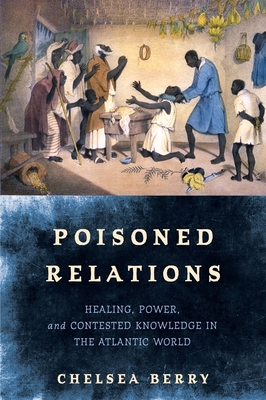Poisoned Relations: Healing, Power, and Contested Knowledge in the Atlantic World

Poisoned Relations: Healing, Power, and Contested Knowledge in the Atlantic World
Illuminates the competing understandings of poison and power in the Atlantic world By the time of the opening of the Atlantic world in the fifteenth century, Europeans and Atlantic Africans had developed significantly different cultural idioms for and understandings of poison. Europeans considered poison a gendered "weapon of the weak" while Africans viewed it as an abuse by the powerful. Though distinct, both idioms centered on fraught power relationships. When translated to the slave societies of the Americas, these understandings sometimes clashed in conflicting interpretations of alleged poisoning events. In Poisoned Relations, Chelsea Berry illuminates the competing understandings of poison and power in the Atlantic World. Poison was connected to central concerns of life: to the well-being in this world for oneself and one's relatives; to the mora
PRP: 438.73 Lei
Acesta este Prețul Recomandat de Producător. Prețul de vânzare al produsului este afișat mai jos.
350.98Lei
350.98Lei
438.73 LeiLivrare in 2-4 saptamani
Descrierea produsului
Illuminates the competing understandings of poison and power in the Atlantic world By the time of the opening of the Atlantic world in the fifteenth century, Europeans and Atlantic Africans had developed significantly different cultural idioms for and understandings of poison. Europeans considered poison a gendered "weapon of the weak" while Africans viewed it as an abuse by the powerful. Though distinct, both idioms centered on fraught power relationships. When translated to the slave societies of the Americas, these understandings sometimes clashed in conflicting interpretations of alleged poisoning events. In Poisoned Relations, Chelsea Berry illuminates the competing understandings of poison and power in the Atlantic World. Poison was connected to central concerns of life: to the well-being in this world for oneself and one's relatives; to the mora
Detaliile produsului









